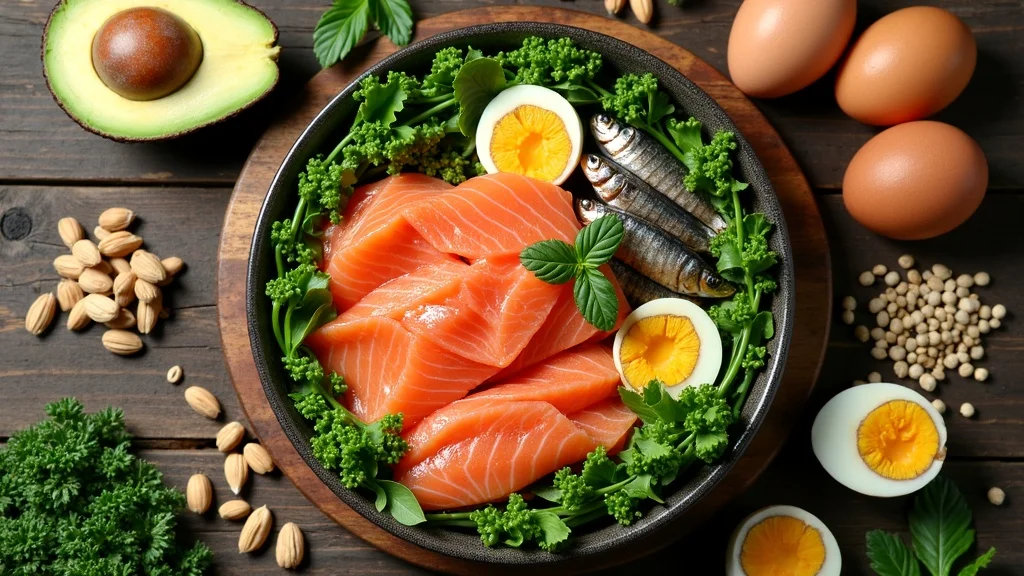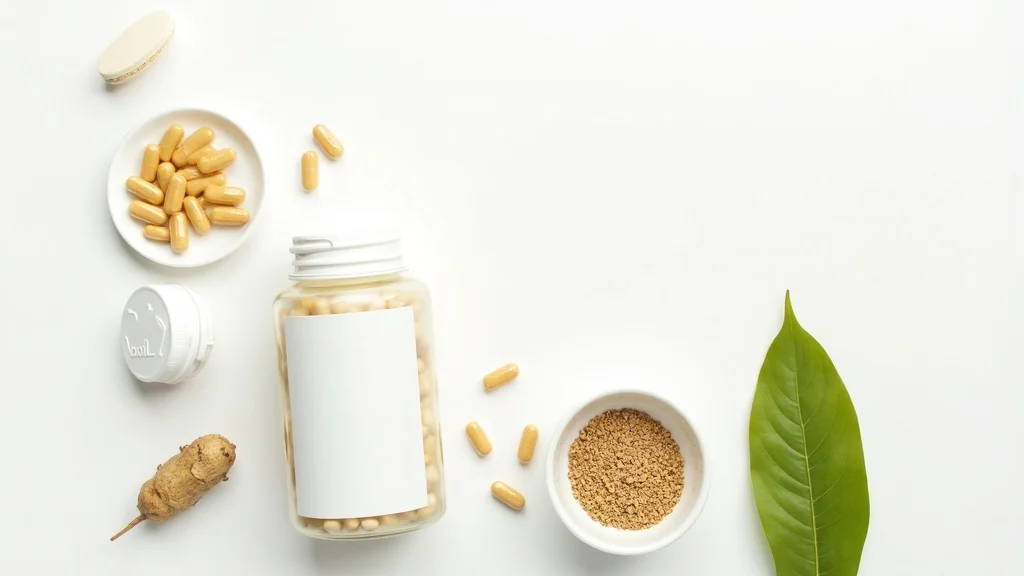Did you know? Over 35% of men over 40 may have low testosterone symptoms and don’t even know it—according to the Endocrine Society. This silent issue can greatly affect your well-being, energy, sex drive, and quality of life. If you're seeking safe, proven ways to increase testosterone naturally—so you can boost vitality, muscle mass, and confidence—this detailed guide will show you the latest, safest methods without risky shortcuts or unwanted side effects.
Startling Facts: Why You Need to Increase Testosterone Naturally
"Over 35% of men over 40 may experience lower testosterone symptoms—often undetected." — Endocrine Society
- Up to 40% of men over 45 show low testosterone levels, but most never get tested.
- Low testosterone increases risk for muscle loss, fatigue, erectile dysfunction, and mood swings.
- Many testosterone boosters in stores offer quick fixes but carry risks or lack clinical evidence.

Debunking Myths About Natural Testosterone Boosters
Despite what ads and social media suggest, not every testosterone booster delivers lasting results—or does so safely. Many supplements claim to raise testosterone levels overnight, but reality is more nuanced. Real, natural progress comes from combining proven lifestyle changes, nutrition, and—only when needed—evidence-backed natural supplements.
It’s also a myth that only athletes or aging men need to worry about testosterone level. Today, factors such as stress, lack of sleep, and poor diet can cause symptoms of low testosterone in men and women of all ages. Understanding what works (and what doesn’t) will help you maintain healthy testosterone levels without risking your health on fads.
What You'll Learn About Increase Testosterone Naturally
- How to recognize symptoms of low testosterone and their health impact
- Lifestyle steps to increase testosterone naturally
- Dietary tactics, including the best foods and vitamins to boost testosterone
- Exercise methods proven to support testosterone production
- Natural testosterone booster supplements: benefits and safety
- How to maintain optimal testosterone levels naturally over time
Understanding Testosterone Levels & Low Testosterone
What Is Testosterone and Why Does Testosterone Level Matter?
Testosterone is a crucial hormone for both men and women, though more prominent in males. It affects muscle mass, sex drive, energy, mood, bone health, and even memory. As men age, their testosterone levels usually decline naturally—but other factors like stress, poor sleep, and unhealthy food choices can worsen this drop. Monitoring your testosterone level is essential for catching any deficiencies early and making adjustments to preserve your health and vitality.
Healthy testosterone production is not only about sexual performance—it's central to mental well-being, muscle maintenance, fat metabolism, and even heart health. Keeping your testosterone levels in the right range improves your body’s ability to recover from exercise, build lean muscle, maintain a balanced diet, and support your overall quality of life.
Symptoms of Low Testosterone and How They Impact Men’s Health
- Reduced sex drive
- Fatigue and low energy
- Erectile dysfunction
- Loss of muscle mass
- Mood changes

The symptoms of low testosterone can creep up quietly, often dismissed as “getting older.” You might notice a weaker sex drive, slower muscle growth, trouble sleeping, or mood swings that affect your relationships or work performance. Chronic fatigue, loss of energy, and persistent feelings of sadness or irritability are all linked to suboptimal testosterone production. Left unchecked, these factors can progress into severe health risks, such as reduced bone density and increased risk of metabolic disorders.
In men with low testosterone levels, the subtle loss of muscle mass and unexplained weight gain further add to frustration, making it harder to maintain a healthy lifestyle. Often, people mistake these signs for a normal part of aging, missing out on interventions that could reverse symptoms. Recognizing and addressing low testosterone levels early is key to regaining energy, rebuilding confidence, and preventing long-term complications.
Why Increase Testosterone Naturally?
Comparing Natural Testosterone Boosters vs. Synthetic Testosterone Boosters
"Natural methods to increase testosterone carry fewer risks and side effects compared to testosterone therapy injections or synthetic boosters."
There are two main paths: boosting testosterone levels naturally or using synthetic hormone therapy. While hormone replacement therapy (HRT) may be necessary in rare, severe cases of testosterone deficiency, most healthy adults see remarkable improvements by focusing on natural testosterone solutions first. Natural approaches—like adjustments in exercise, sleep, stress, and nutritional intake—improve hormone balance without artificial interventions or risky side effects.
Unlike synthetic testosterone therapy, natural testosterone boosters are less likely to trigger mood swings, fertility problems, or irreversible changes to your body’s hormone systems. When you increase testosterone naturally, your body adapts, producing the right levels to restore energy, fertility, sexual function, and confidence, usually at a far lower cost and with longer-lasting benefits.
| Aspect | Natural Testosterone Boosters | Synthetic Hormone Therapy |
|---|---|---|
| Benefits | Supports natural hormone production; sustainable results; holistic health improvement | Rapid results; can correct confirmed severe deficiencies |
| Side Effects | Minimal when evidence-based and well-formulated | Risk of infertility, mood changes, cardiovascular issues, and hormone suppression |
| Longevity | Long-term benefits if healthy habits maintained | Must be sustained with ongoing treatment and medical supervision |
| Cost | Generally lower (habit changes, supplements, diet) | Can be expensive, not always covered by insurance |
Lifestyle Factors That Increase Testosterone Naturally
Regular Exercise to Boost Testosterone Levels

One of the most effective ways to increase testosterone naturally is through regular physical activity—especially resistance training such as weightlifting or HIIT (High Intensity Interval Training). Studies show that even moderate strength workouts cause a significant increase in testosterone production, helping with muscle growth, fat burning, and mental health. Cardio exercises support overall health, but strength movements—like squats, deadlifts, and push-ups—offer the most dramatic hormone-boosting results.
Building regular exercise into your routine, at least 3–4 sessions per week, doesn’t just boost testosterone—it reduces stress, regulates sleep, and accelerates recovery. Consistency is key: whether you start small or go big, the combined effect of challenging your muscles and cardio system will gradually nudge your hormone levels higher and maintain them for the long term.
Why Quality Sleep Is Crucial for Testosterone Production

Sleep is the body’s prime time for recovery, tissue repair, and hormone balance. Missing just a few hours of deep sleep can result in lower testosterone levels the next day. Adults aiming to maintain healthy testosterone levels should target at least 7-9 hours of quality sleep per night. Deep, uninterrupted rest aids in testosterone production, restores mental clarity, boosts mood, and supports muscle rebuilding after workouts.
To improve your sleep, try keeping a consistent bedtime, shutting off electronics an hour before, and making your bedroom cool, dark, and quiet. Avoid stimulants late in the afternoon and consider stress-reducing techniques like meditation before bed. Prioritizing sleep can produce a substantial improvement in your testosterone level—sometimes within days.
Managing Stress to Increase Testosterone Levels
- Practice deep breathing or meditation daily to lower cortisol (stress hormone).
- Schedule regular movement breaks if you sit for long periods.
- Engage in hobbies and social connections to encourage positive feelings.
- Avoid over-scheduling and support work-life balance.
- Limit alcohol and caffeine intake to prevent lower testosterone spikes.
Everyday stress triggers high cortisol, a hormone that directly suppresses testosterone production. By gradually adding stress management habits, you not only boost testosterone, but also gain a host of side benefits—improved heart health, sharper focus, and easier weight maintenance. Start small and track your progress; even 10 minutes a day of stress reduction can make a noticeable difference.
Increase Testosterone Naturally with Nutrition
Best Foods to Increase Testosterone Levels
- Fatty fish (salmon, sardines, mackerel)
- Eggs
- Leafy green vegetables
- Nuts and seeds
- Avocados

Diet plays a direct role in your hormone levels, so choosing the right foods can help increase testosterone levels naturally. Fatty fish such as salmon and sardines are packed with omega-3 fatty acids, supporting low inflammation and healthy hormone balance. Eggs—especially the yolks—deliver healthy fats and cholesterol, both crucial building blocks for testosterone production.
Add leafy greens (like spinach and kale) for magnesium, nuts and seeds for zinc and healthy fats, and avocados for vitamin B6 and potassium. This balanced diet supports your body’s ability to maintain healthy testosterone levels while also providing antioxidants that protect against age-related decline. Avoid processed foods, excess sugar, and unhealthy fats, all of which can lower testosterone over time.
Essential Vitamins and Minerals That Boost Testosterone
- Vitamin D
- Zinc
- Magnesium
- Vitamin B6
Supplementing or ensuring you're consuming these nutrients daily can make a tangible difference. Vitamin D, acquired through sunlight or fortified foods, is linked to higher testosterone levels in men and women. Zinc, found in oysters, beef, and pumpkin seeds, directly supports testosterone production and is frequently low in those with symptoms of testosterone deficiency. Magnesium (from greens and nuts) ensures efficient hormone signaling, while vitamin B6 helps regulate hormone metabolism and is involved in stress reduction.
If you're struggling to meet these needs from food, consider a multivitamin or focused supplement, but consult your healthcare provider first to avoid excessive intake. Building these nutrients into your nutrition plan improves your odds of a steady, significant increase in testosterone levels over time.
| Food | Key Nutrient | Benefit |
|---|---|---|
| Salmon (Fatty fish) | Omega-3s, Vitamin D | Reduces inflammation, supports hormone balance |
| Eggs | Healthy fats, Protein, Vitamin B6 | Boosts testosterone synthesis |
| Leafy Greens | Magnesium | Improves testosterone production signals |
| Pumpkin Seeds, Cashews | Zinc | Essential for healthy testosterone and sperm |
| Avocado | B6, Healthy fats | Hormone balance, reduced stress |
Natural Testosterone Booster Supplements: Do They Work?
Popular Ingredients in Tested Testosterone Boosters

Not all testosterone boosters are created equal. The best natural supplements focus on science-backed ingredients, such as ginseng, fenugreek, zinc, magnesium, and vitamin D. Herbal extracts like ashwagandha and tribulus terrestris can also support testosterone production by reducing stress, improving libido, and enhancing the body's adaptive response to exercise.
Rather than relying on a single ingredient, most top-rated boosters combine several nutrients and adaptogens to cover multiple hormonal pathways. For many men with mild or moderate symptoms, this approach restores healthy testosterone levels safely—especially when combined with better sleep and nutrition.
Scientific Evidence for Natural Testosterone Boosters
Research shows certain supplements can create a significant increase in testosterone levels, but results depend on each person’s baseline health, age, and lifestyle factors. Clinical studies support zinc and vitamin D as the gold standard for correcting deficiencies, while ashwagandha and fenugreek have shown promising effects on muscle mass and overall well-being. Remember, no supplement will replace a balanced diet or exercise plan, but carefully selected products can help address gaps and provide an extra boost.
Be wary of products that overpromise or lack clear ingredient transparency—many supplements claim to fix low testosterone overnight but offer little backing. Check for third-party testing, clinical study citations, and reputable brands when shopping for natural testosterone supplements.
Are Natural Testosterone Boosters Safe?
- Ginseng
- Fenugreek
- Vitamin D3
- Zinc
- Ashwagandha
- Magnesium citrate
"When chosen properly, natural testosterone boosters can support healthy testosterone levels without major risks."
Most established natural testosterone boosters have excellent safety records when used as directed, especially compared to synthetic alternatives. Side effects are minimal or rare, provided you stick with recommended dosages and avoid obscure blends. Always review new supplements with your healthcare provider, particularly if you take medications or have underlying conditions. With prudent selection, natural supplements can complement a holistic approach to increasing testosterone naturally.
Top Lifestyle Tips to Increase Testosterone Naturally
- Schedule strength training sessions 3–4x per week
- Adopt stress-reduction techniques (meditation, yoga)
- Prioritize 7-9 hours of sleep each night
- Incorporate fatty fish and leafy greens into meals
- Limit processed foods and added sugars

Consistency across these habits will drive the best results. Regular resistance training keeps testosterone levels high, while a balanced diet of nutrient-dense foods gives your body the building blocks it needs. Adequate sleep and mindful stress relief methods help your body produce and maintain healthy testosterone naturally. Limiting junk foods and added sugars further reduces the risk of lower testosterone levels over time. Small steps, kept up over months, can transform your hormone health, muscle, mood, and performance.
Expert Explains Increase Testosterone Naturally Strategies
Watch this educational explanation from a credentialed health expert showing the science behind boosting testosterone levels naturally—including optimal diet, exercise routines, sleep hacks, and recommended natural testosterone boosters.
Addressing Common Issues: Erectile Dysfunction and Low Sex Drive
How Increasing Testosterone Naturally Can Improve Erectile Dysfunction

A frequent (but often unspoken) symptom of low testosterone is erectile dysfunction and reduced sex drive. By restoring your testosterone levels naturally, most men witness improvements in sexual desire, performance, and relationship satisfaction. Natural methods—such as targeted exercise, improved sleep quality, and stress reduction—optimize not just hormone levels, but circulation and mental confidence as well.
For men with low testosterone level, ramping up these habits often makes a remarkable difference before ever needing medication. If symptoms persist, consult your doctor for tailored guidance—but most cases respond favorably to these safe, foundational changes.
Increase Testosterone Levels to Enhance Sex Drive
"Boosting testosterone production may help restore vitality, energy, and confidence." — Dr. Carter
A healthy testosterone level is closely linked to a strong, consistent sex drive in both men and women. If you’ve noticed a drop in interest or performance, increasing testosterone naturally through the steps outlined here may bring back your enthusiasm and intimacy. Remember, the benefits go beyond the bedroom—better hormone balance means improved mood, focus, and long-term well-being.
People Also Ask: How to Increase Testosterone Naturally
How can I increase my testosterone levels fast?
Rapid strategies to increase testosterone naturally: exercise, sleep, supplementation, stress reduction.
To increase testosterone levels quickly, focus on high-intensity resistance training (like squats and deadlifts), ensure 7-9 hours of restful sleep per night, and introduce a well-formulated natural testosterone booster supplement containing nutrients like zinc, vitamin D, and magnesium. Reducing daily stress and temporarily avoiding alcohol or junk food can further accelerate testosterone production within days to weeks.
Which food will increase testosterone?
Top foods: fatty fish, eggs, leafy greens, avocados, nuts, and seeds.
The most effective foods for boosting testosterone are fatty fish (salmon, sardines), whole eggs, leafy green vegetables (spinach, Swiss chard), avocados, and a mix of nuts and seeds (pumpkin, chia). These nutrient-packed ingredients deliver key vitamins, minerals, and healthy fats required for daily testosterone production and overall hormone balance.
Which vitamin boosts testosterone?
Vitamin D and Zinc are critical to naturally increase testosterone levels.
Among essential vitamins, vitamin D and zinc stand out for their strong evidence in supporting healthy testosterone levels. If you struggle with low sunlight exposure, consider a vitamin D3 supplement alongside a zinc-rich diet—both can yield a significant increase if you have a present deficiency.
How can I get 1000 testosterone naturally?
Advanced nutrition, exercise, and supplement strategies for optimal testosterone production.
Achieving “optimal” (1000 ng/dL) testosterone levels naturally takes regular heavy strength training, strict adherence to nutrient-rich meals (with ample healthy fats and vitamins), optimal sleep hygiene, and targeted supplementation if needed. While genetics play a role, most men see substantial improvement by following a structured health regimen, occasionally monitored and adjusted by a medical professional.
Separating Hype from Evidence in Testosterone Booster Supplements
Learn the truth behind popular testosterone boosters, how to spot hype from credible science, and the best way to choose safe, effective products to increase testosterone naturally.
Frequently Asked Questions (FAQs) About How to Increase Testosterone Naturally
-
How long does it take to increase testosterone levels naturally?
Most people notice changes within 4–8 weeks of consistent lifestyle adjustments, though improvements in energy or mood can occur within a few days. -
Are natural testosterone boosters effective for everyone?
Results vary by age, baseline health, and adherence—most healthy adults with mild or moderate deficiency benefit the most from natural interventions. -
What is the safest way to increase my testosterone?
Focus on exercise, nutrition, sleep, and if needed, a clinically-validated supplement. Always consult your doctor, especially if you have underlying medical conditions. -
Can women benefit from increasing testosterone naturally?
Yes, in small amounts, balanced testosterone is crucial for women’s energy, muscle tone, mood, and sex drive, but supplementation requires more caution and often lower dosages.
Key Takeaways: Safely Increase Testosterone Naturally
- Natural testosterone boosters offer safer, holistic benefits over synthetic options
- Diet, exercise, and lifestyle play central roles in testosterone production
- Supplements can help but must be chosen with care
Ready to Increase Testosterone Naturally?
Explore Our Recommended Natural Testosterone Supplement for Safe, Effective Results
- Learn more about top-rated, clinically formulated testosterone boosters—visit: https://nrgwave.com/productdetail/TMAXXPro?u=5959
Conclusion: Increasing testosterone naturally fuels better health, confidence, and vigor—safely. Start today with proven habits and the right support, and you’ll notice meaningful, lasting changes in energy, performance, and quality of life.
 Add Row
Add Row  Add
Add 




Write A Comment